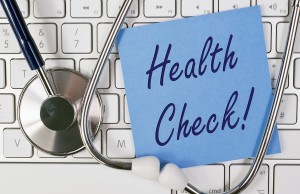It Counts to Be Covered – Early Detection of Diabetes
Friday, April 17th, 2015 A recent and interesting study has proven that early detection of diabetes and the number of insured Americans have a direct link and that link is access to affordable health care. Dr. Vivian Fonseca, a professor of medicine and endocrinology at Tulane University in New Orleans says the following: “We’ve known for a long, long time that a lot of people with Type II diabetes go unrecognized for many years because they don’t get screened.” According to Fonseca, this is particularly frustrating because many of those who do not get screened don’t do so because they don’t have health insurance.
A recent and interesting study has proven that early detection of diabetes and the number of insured Americans have a direct link and that link is access to affordable health care. Dr. Vivian Fonseca, a professor of medicine and endocrinology at Tulane University in New Orleans says the following: “We’ve known for a long, long time that a lot of people with Type II diabetes go unrecognized for many years because they don’t get screened.” According to Fonseca, this is particularly frustrating because many of those who do not get screened don’t do so because they don’t have health insurance.
The Chief Medical Officer for the American Diabetes Association, Dr. Robert Ratner, says that early diagnosis and treatment are particularly crucial with diabetes. If the disease is left untreated, it can lead to blindness, heart attack, kidney failure and other complications that can require the amputation of the foot or leg. According to Dr. Ratner, “early and aggressive therapy of diabetes has a major impact on long-term complications and on quality of life.”
Interestingly enough, North Carolina is a part of what medical professionals call the “diabetes belt,” a region stretching from Louisiana to North Carolina. North Carolina is also among the top ten states having the greatest amount of uninsured residents, meaning many of those residents are likely not being properly screened for early detection of diabetes.
Many Americans show tell-tale signs of diabetes, such as exhaustion and constant thirst. Despite the signs, however, many of those who do not have health coverage simply choose to cope with the symptoms for fear of running up huge medical expenses. Early intervention, however, can not only reduce health risks associated with diabetes, but also reduce long-term costs, which account for a large percentage of overall health spending.
Although there is a cost to having health insurance, ultimately there is a greater cost to being uninsured. Diabetes is only one of many treatable diseases that can be managed, controlled and even cured through early detection and proper treatment. If you are one of the many residents of North Carolina who still need to obtain health insurance, don’t wait. Blue Cross Blue Shield of NC is committed to providing quality health coverage that works with your family’s budget. Whether you enroll in Blue Advantage, Blue Value or Blue Local, having a health insurance plan that covers your costs when you need it is well worth the investment.
For more information on Blue Cross Blue Shield of North Carolina health insurance coverage, the Marketplace and healthcare gov to apply for your subsidy, please visit our website at www.nchealthplans.com or call our toll free number 888-765-5400 and speak with one of our experienced and professional agents. Let us help you navigate through the Health Care Reform changes in accordance with the new regulations of The Affordable Care Act, also known as Obama care.










